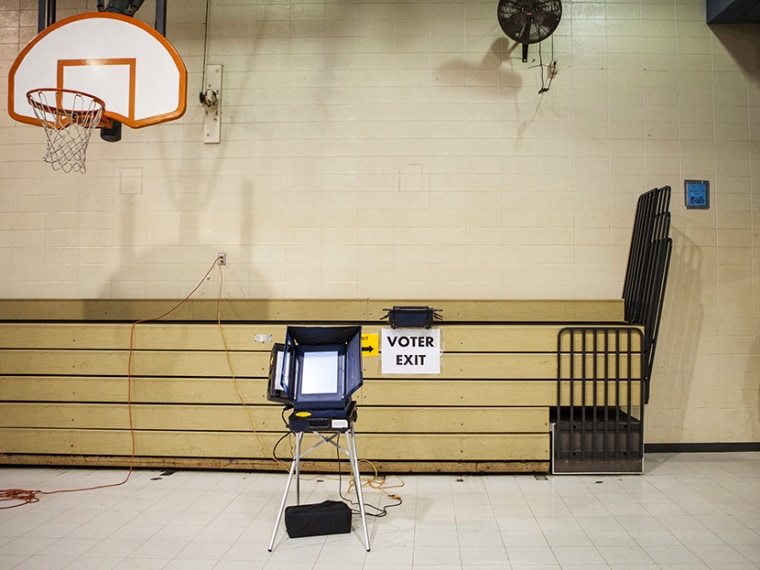The survey ... asked Americans about their general concern that ineligible voters would cast votes.... Americans are fairly split on their degree of concern about votes being cast by people who, by law, are not eligible to vote. More than a third view it as a major problem (36%), while nearly as many view it as either a minor problem (32%) or not a problem at all (29%). A majority of Republicans (52%) perceive voter fraud as a major problem, which is reflected in the policy stances of many GOP state governors. By contrast, just 26% of Democrats expect ineligible persons voting to be a major problem this year. Southerners (42%) are more likely than those in other regions to view it as a major problem. The South is the most Republican region in the country, and the only region where some variation of a voter ID law is in effect in every state.
GOP convinces its base about illusory 'voter fraud' scourge
Republicans have told their base "voter fraud" is a genuine crisis. It's a lie, but GOP voters believe it anyway.

Can a misleading debate cause widespread public confusion? Of course it can. Take this Gallup report, released yesterday, for example.
In general, I don't much blame Republican voters for getting this wrong. Instead, I blame GOP leaders who've convinced rank-and-file voters to believe something that isn't true.
Because as a practical matter, Republicans have been told so many times over the years about the scourge of widespread "voter fraud" -- by GOP officials and prominent media conservatives -- that much of the public is bound to believe that there's a legitimate problem affecting the outcome of elections.
Except, there isn't. Objective evidence makes clear that this "fraud" hardly exists, doesn't affect elections, and remains a made-up problem in search of unnecessary solutions. Republican leaders see electoral value in imposing new voting restrictions that help give the GOP an edge, and to justify these hurdles, they have to manufacture a crisis that's largely imaginary.
The result is another installment in the "reality gap" file.
Remember, rank-and-file Republicans, following cues from their party leaders, generally believe the deficit has grown, illegal immigration has increased, global warming isn't a crisis, crime rates are getting worse, and "voter fraud" is rampant. None of these claims is true -- reality points in the exact opposite direction in each case -- but GOP voters have been told otherwise by those who benefit politically from the deception.
Of course, there's at least some risk involved, at least in this case: the more Republicans lack confidence in the election system, and fear illusory "fraud," the greater the odds these voters will simply stay home on Election Day, concluding that the system is "rigged."